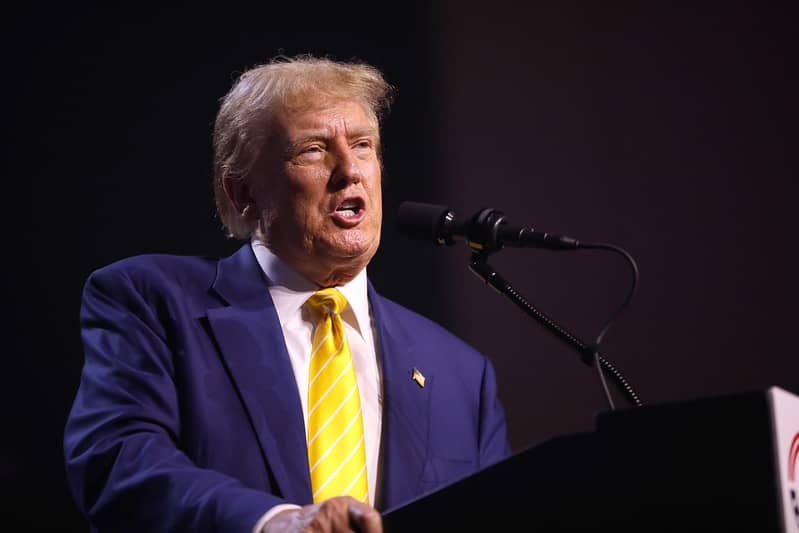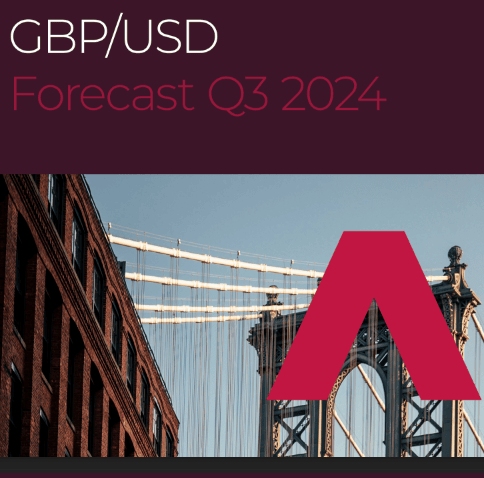
Image: Gage Skidmore.
The Dollar is still more interested in the Federal Reserve than the November Presidential election, says an analyst at HSBC.
"The USD is modestly stronger this morning, but Bloomberg’s suggestion that it reflects US election expectations seems unlikely," says Daragh Maher, Head of Research for HSBC in the U.S.
Pound Sterling Live previously reported of linkages between bouts of Dollar strength and increasing odds of a Donald Trump win in November's U.S. Presidential election. Those odds shot up in the wake of this weekend's assasination attempt on the U.S. President, yet there was no significant boost to the Dollar.
"In June, the USD and market betting expectations for a Trump victory did move in tandem, but they moved in opposite directions in both May and so far in July," says Maher.
The odds of a Trump presidency rose after an unsuccessful attempt to assassinate the former president in Philadelphia on Saturday. Online betting site PredictIt showed bets of an election win at 67 cents for Trump, up from Friday's 60 cents, with a victory for Democratic U.S. President Joe Biden at 26 cents.
"Currency markets are stabilising as Sunday’s rally in the dollar reverses, suggesting that the weekend’s assassination attempt on Donald Trump has not impacted the near-term investment outlook in any meaningful way," says Karl Schamotta, Chief Market Strategist at Corpay.
A common argument made by currency analysts is that the Dollar is likely to benefit under a Trump regime due to the prospect of lower taxes, inflationary protectionism measures (requiring higher Federal Reserve interest rates for longer) and greater geopolitical risks (safe-haven strength).
"The FX market wants a simple reaction function to shifting signals around the likely election results in November," says Maher. "One line of logic is that a win for former president Donald Trump would see the USD strengthen due to the increased prospects for fiscal stimulus, a business friendly corporate tax cut and deregulation, and USD-positive hikes to trade tariffs."
However, he cautions that it is still being determined how the USD would react to a fiscal stimulus with the budget deficit already being so large.
"There could also be questions over whether the Fed would be pressured to cut rates more quickly. Irrespective, the recent price action in the USD also suggests little link between the election and the USD," says Maher.
"For all the media focus on the election, the FX market is far more fixated on the Fed policy outlook," he adds.
The odds of a September rate cut from the Fed look to be nailed on by the market, following a series of softer-than-expected data releases and 'dovish' commentary by the U.S. Fed Chair Jerome Powell.
With the September more or less fully priced, the Dollar might see its recent selloff ease. This is because markets must now start pricing in deeper rate cuts further out.
For this, we would need more convincing evidence of a U.S. economic slowdown.


